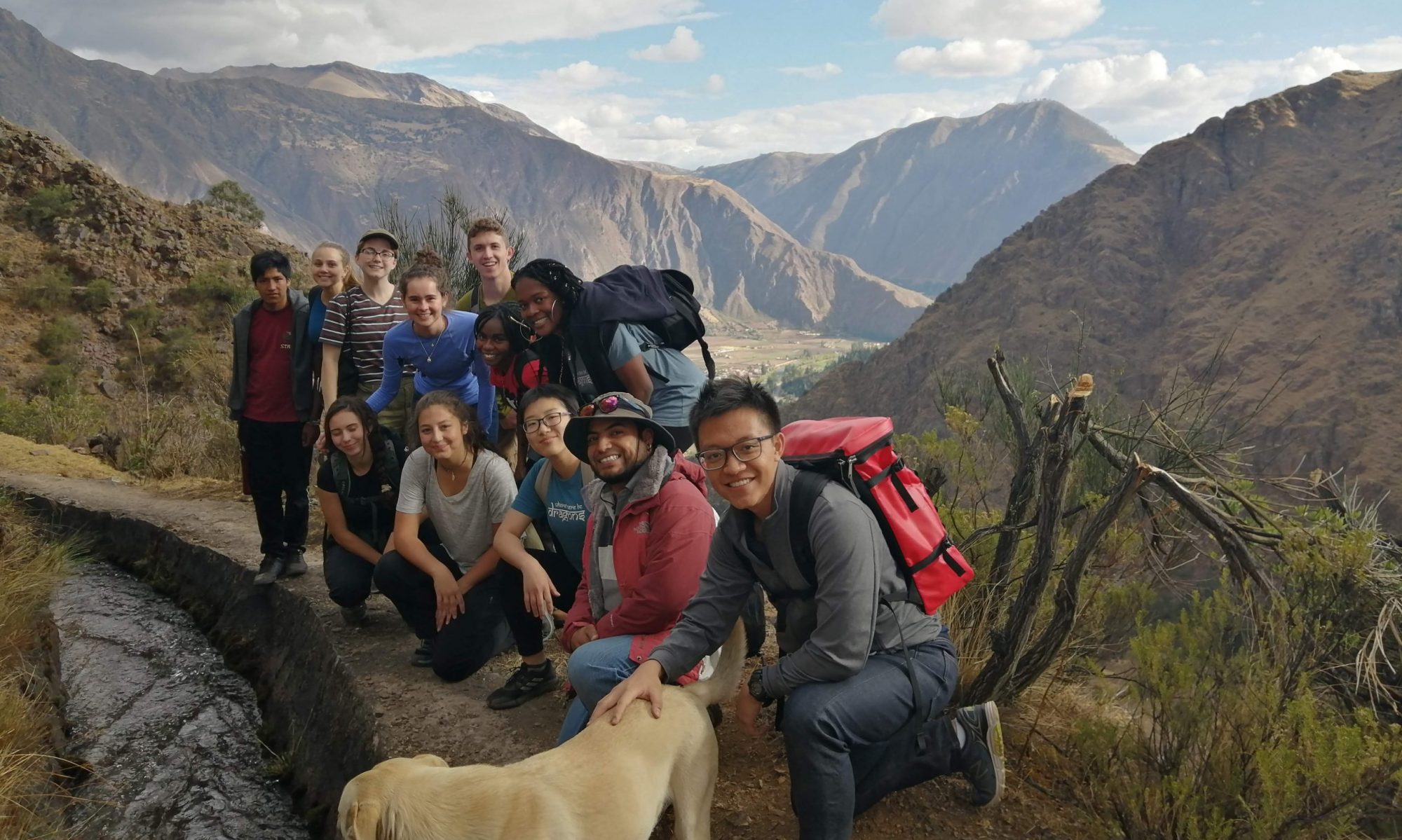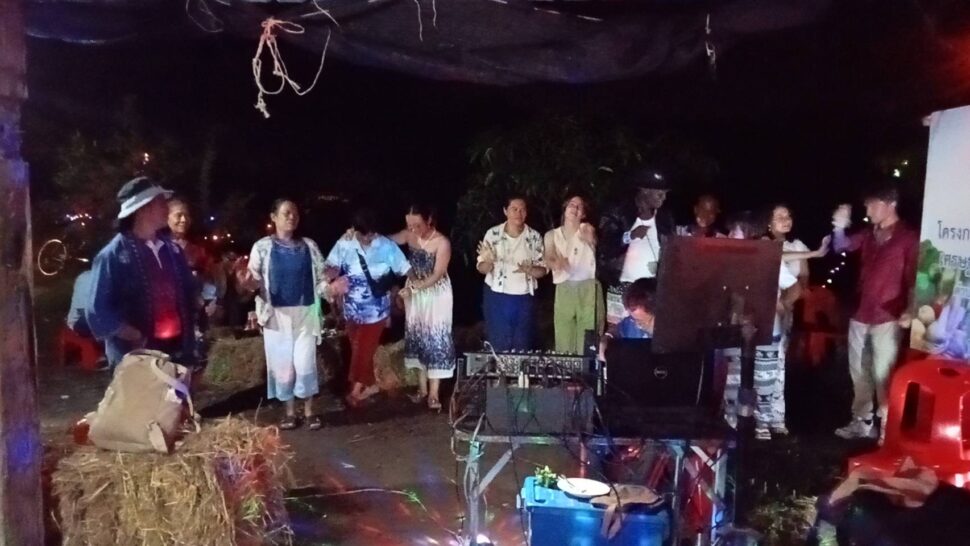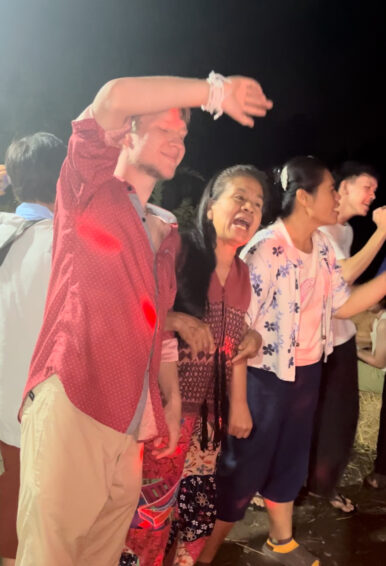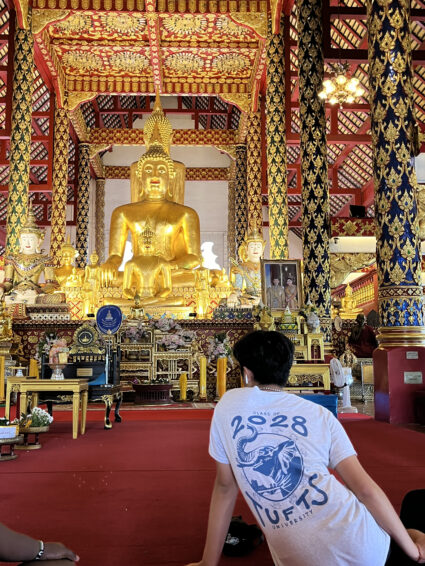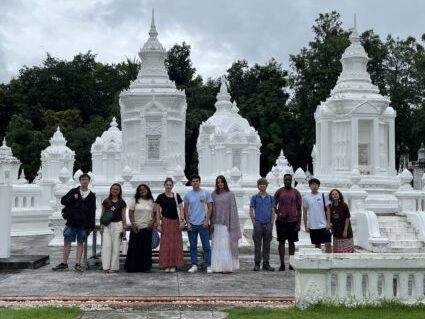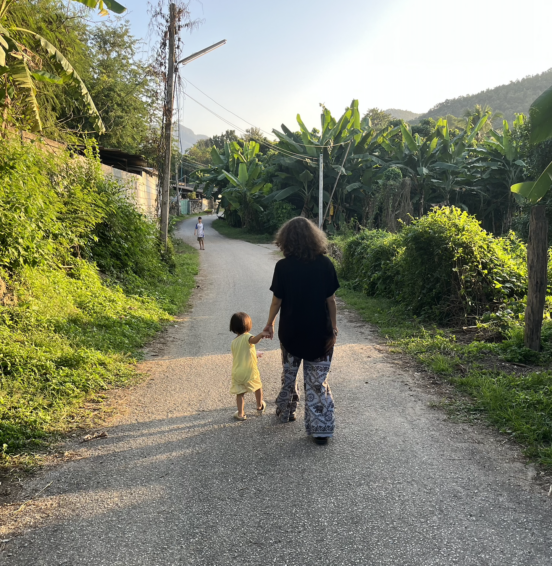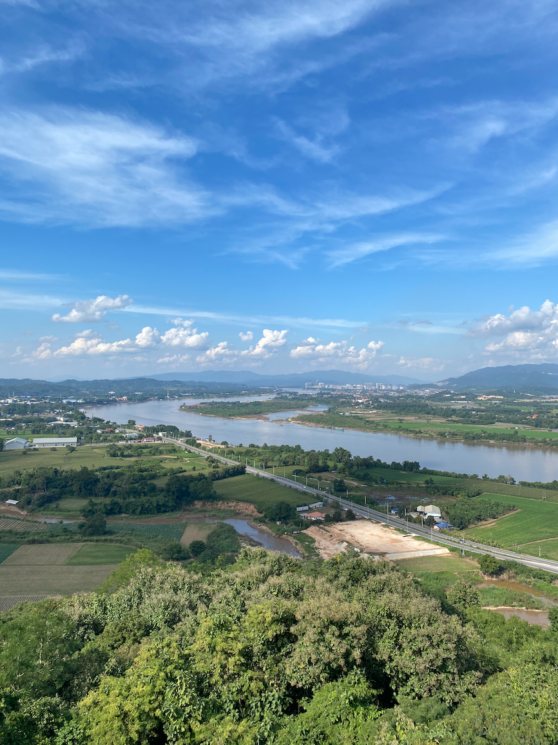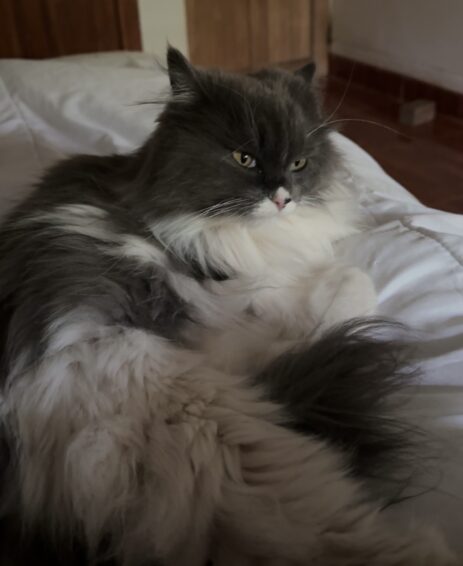by Nelson
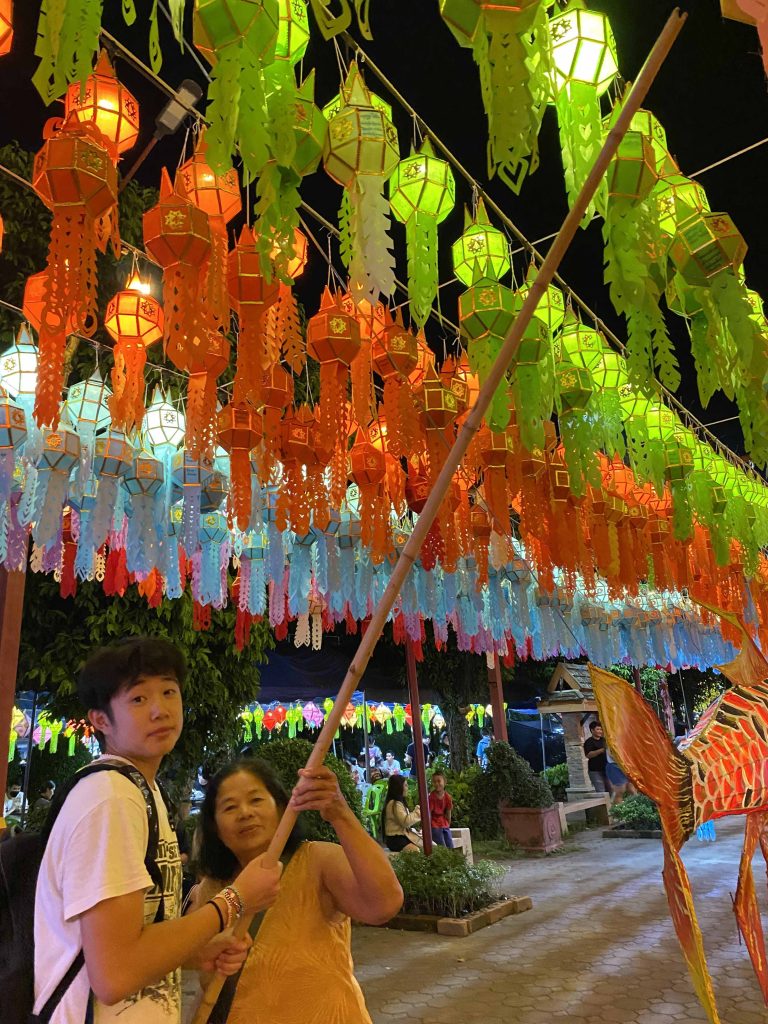
Dear Mae Wan Deeh (Host Mom),
Can you believe it has been a month and a half already? It feels like just yesterday I was nervously wheeling my suitcase from Mar Tim’s house into your house, unsure and nervous of what to expect in the next month, and now, I’m writing this letter imagining what life will feel like without you and Pho Wan Lip.
I know you might never get a chance to fully understand what I wrote in this letter, but I hope you can feel the heart behind these words, even if a phone translator doesn’t get everything quite right. After all, some feelings go beyond language, don’t they? That’s something you’ve taught me every single day, living in the Huai Lan community.
I’ve learned so much from you, Mae Wan Deeh, not just about Thailand’s rich culture and delicious food but also about the small, everyday ways we care for each other despite our language barrier. You have shown me that language barriers should not be a wall but an opportunity to build a bridge––something that connects us through patience, kindness, and shared moments.
You reminded me that social change doesn’t start through wordy conversations. It starts with connection. It starts with understanding one another through shared experiences and goals, even when words fall short. Your generosity, patience, and openness have inspired me to approach my own social change journey with the same attitude––focusing on the simple ways we can connect and build relationships with those around us.
Because of you, I’ve learned that social change isn’t about imposing ideas and trying to solve a big problem at once. It’s about creating a space for mutual respect and collaboration. It’s about valuing the unique strengths and perspectives that everyone brings to the table and finding ways to work together toward a shared purpose.
Your quiet leadership and everyday acts of care have shown me that social change doesn’t need to be loud or grand––after all, actions speak louder volumes than words can ever do. I hope to carry these lessons with me as I continue my journey, striving to build connections that foster understanding and inspire growth.
I’ll miss both you and Pho Wan Lip than words on this paper can ever say. But I promise I will carry everything I’ve learned here with me back to the Tufts Campus. I hope that one day I can come back to visit––maybe this time, my Thai will be a lot better. Until then, please take care of yourself, and know you and Pho will always have a special place in my heart.
With so much love and kindness, your host son,
Nelson Chen
